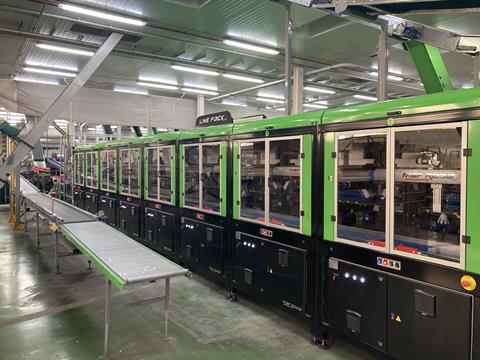Afrucat, Assomela, and ANPP warn that new EU regulations threaten Europe’s food sovereignty

Catalan fruit association Afrucat and Italian and French apple and pear organisations Assomela and ANPP have warned that EU sustainability rules are putting Europe’s food sovereignty at risk.
Following a meeting of the Southern Zone Joint Committee’s contact group on top fruit yesterday, they are calling on the European Commission to exempt apple and pear producers from new packaging laws banning single-use plastic packaging for pre-packed fresh fruit and vegetables weighing less than 1.5kg.
“The French and Spanish experiences with eliminating plastic packaging for fresh fruits and vegetables demonstrate that it is impossible to apply Regulation (EU) 2025/40 on packaging and packaging waste to our products,” Afrucat said in a statement.
The associations claim that the decrease in consumption, the increase in packaging costs, the increase in shelf prices, as well as the loss of product quality, run counter to public health objectives regarding the consumption of fresh fruits and vegetables and represent a serious violation of the principle of free movement of goods.
“We collectively call on the European Commission to exempt our apples and pears from this regulation. Furthermore, we demand a single EU-level coordination on packaging, with no possibility of adaptation or modification by member states. These adaptations could lead to increasing distortions of competition within the single market and drastically reduce competitiveness.”
The meeting also called into questions moves by the EU to reduce the number of plant protection products authorised for use by European growers.
“We believe we are at a turning point, and that any new restrictions, bans, or limitations on plant protection products will have irreparable consequences for food sovereignty and security,” they said.
“We call on the European institutions and our administrations to urgently initiate a reform so that decisions on the authorisation and marketing of plant protection products are made in a harmonised manner at the European level.
“We fully agree that widespread EU bans on plant protection solutions, and even more so the possibilities for member states to establish different conditions of use, can increase distortions of competition and significantly reduce productivity.
With regard to assessing the carbon footprint of fruit and vegetable production, the associations claimed that studies show that apple and pear orchards already act as net carbon sinks and that the margins for reduction are very small compared to the rest of the food chain.
“As part of the discussions on the CarbonAgri project, we ask that the European Commission take the favourable situation of our production into serious consideration,” Afrucat said, adding “in a context of war economy and imminent economic war, the time has come to produce, and we are ready to do so… if Europe gives us the means”.



